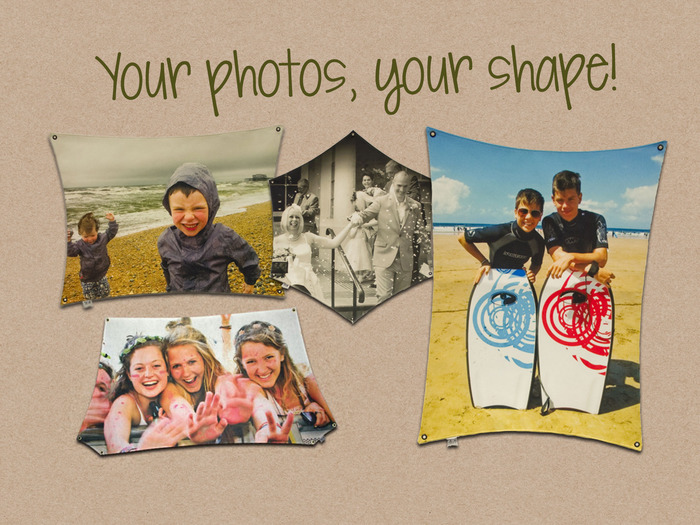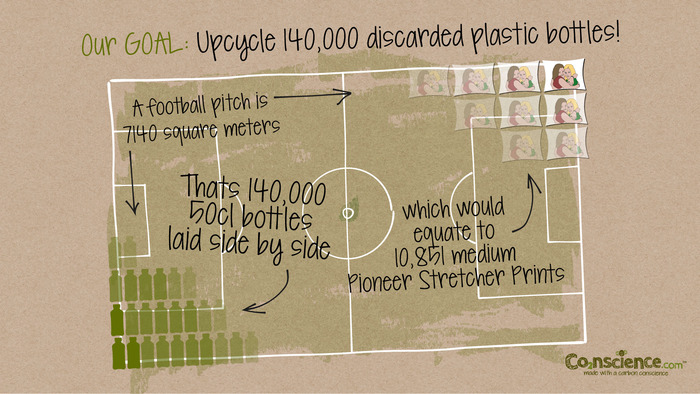How you display your images can make or break them. But who among us really knows the finer points of how to do it? This infographic should help!
Stretcher Prints: making art from old plastic bottles
What can you make from 140,000 already used plastic bottles? I have a pencil that once upon was a plastic bottle. (It says so on it.) Probably quite a few of those. Or a gajillion combs. They seem to be popular recycled products. Headphones, too. They can be manufactured from recycled plastic bottles. But what about pictures? Apparently, yes. Co2nscience, a UK-based start-up wants to transform 140,000 bottles into enough felt-like canvas material suitable for photographic reproductions to cover a football pitch. (A European football pitch, not an American one.) That's 10,851 prints measuring 960mm by 710mm. Co2nscience is looking for £12,000 in Kickstarter funding get their Stretcher Prints project out of the ground and onto people's walls.
Stretcher Prints aren't framed; as the name suggests, they stretch over your wall and are secured through eyelets. Without a frame and because of the flexibility of the material, they're not restricted to flat walls but can decorate spiral staircases, for example. Oh, and they can go in the washing machine.
There are four different sized stretcher prints on offer, the cheapest starting at £49 if you want to have your own image printed on it. There are off-the-shelf prints available, too, but I'm guessing that you'd prefer to see your own pictures on one!

Co2nscience's Kickstarter runs until 10 April and they need another £9,000, or thereabouts, to make it happen. Who knew that a plastic bottle could become something so pretty? And it's so much better than going to landfill.

Faceifi lets you identify people using photos
'Why can't I find out more about somebody from just a photograph?' That was the question that started Faceifi, which is a bit like a social directory where you identify people using images of them rather than by name. That makes it an actual, digital facebook, I suppose. The theory goes Faceifi helps you to control your online identity. You create a Facifi profile by uploading at least five photos of yourself and providing a link that tells people more about you. The link can direct to Facebook, Twitter, a blog, or anywhere you like. Using the Faceifi database anyone can search for you, either by looking for your image or by using a photo of you that they have, and then find out more about you from your link. Yep, if you have a Faceifi profile and someone snaps a picture of you on the Tube, they can find out whatever you've chosen to share. And that's not creepy. At all.
Right now, Faceifi has a desktop and an iOS interface, with an Android version in the works. It's also planning on expanding what users can share, for example with a short biography, and introducing in-app messaging. But it doesn't have very many users, which means that at present you're unlikely to find the person for whom you're searching. That has the potential to change as and when more people sign up to Faceifi, but will they?
I can't say that I'll be signing up for Facifi anytime soon. Sometimes, I rather appreciate being nothing more than a face in the crowd.
What do you think? Useful, or just a bit over-indulgent?
(Headsup to The Next Web)






